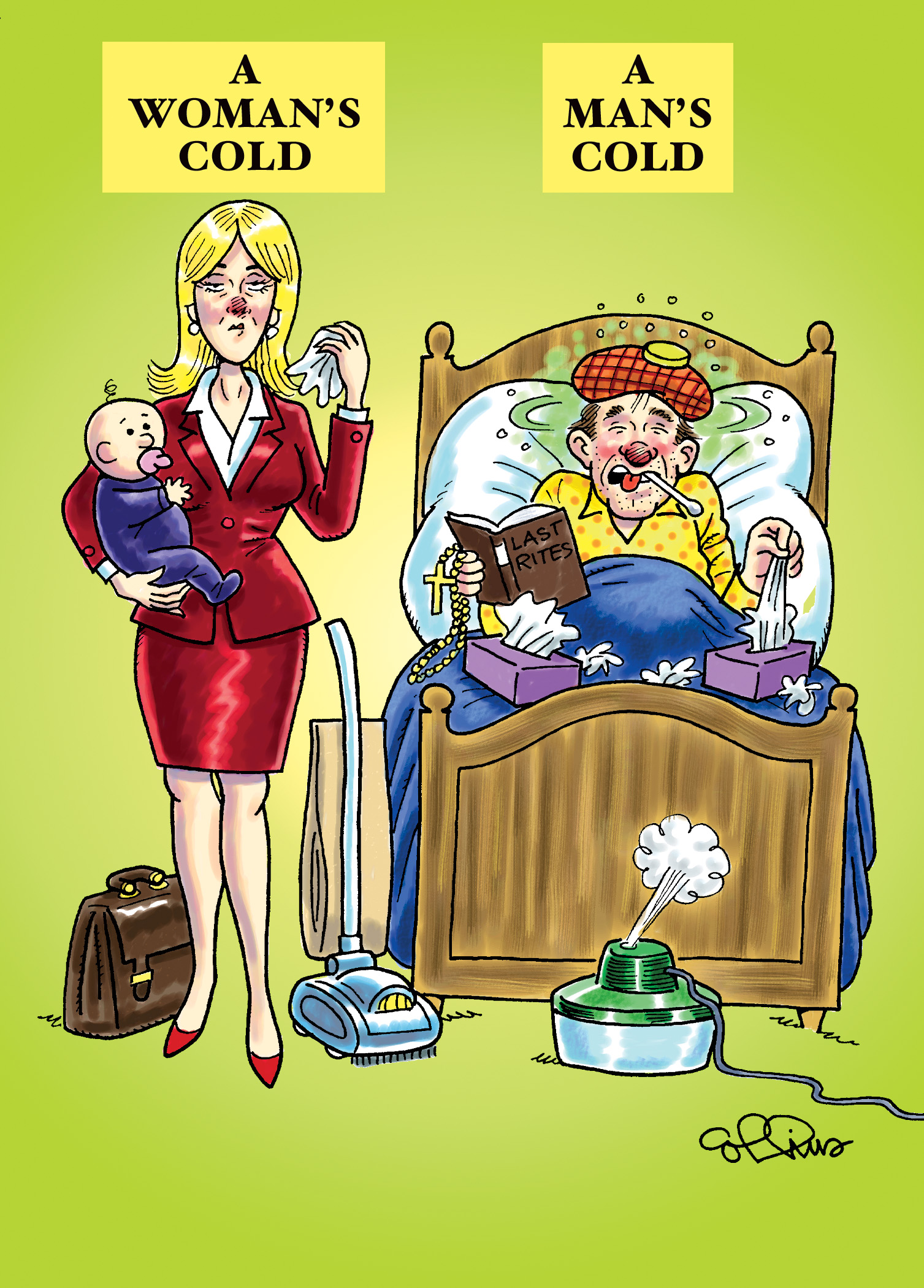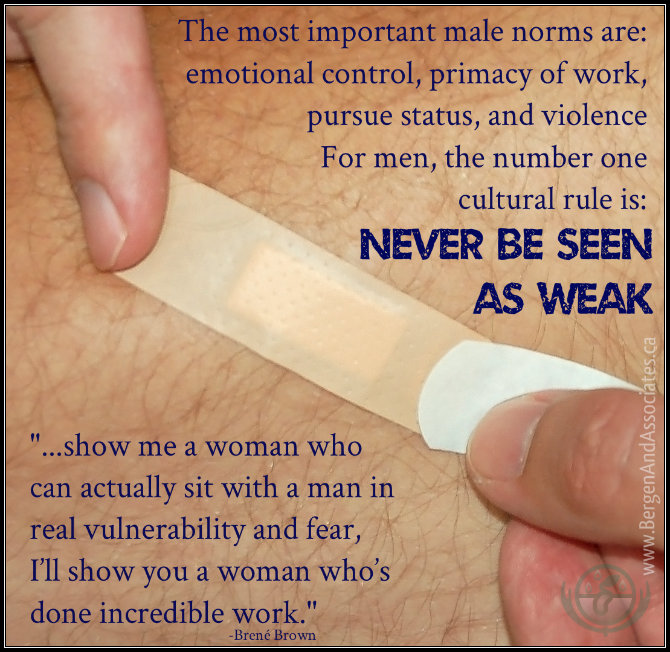You’ve seen this, or a version of it, while watching a commercial for cough syrup or cold symptoms, right?
Some research suggests that women are biologically more sensitive to pain and therefore more likely to struggle during illness. Other research suggests that men have different temperature receptors in their brain and feel “rougher” during the flu because of their reaction to colds. Other research suggests that women have greater immunity prior to menopause, making men more vulnerable to viruses, though this isn’t widely accepted. The jury is still out on the biological basis for the man cold.
But first, a different but related story:
A friend of mine is a Grade 1 teacher. She adores them, she gives them her best, and they respond. One day told the class that she loved them. They were dumbstruck–a little concerned and weirded out. They didn’t understand how a teacher could love her students. So, she spent some time having them understand that it was not a romantic love, but a teacher love, and she really loved them as a teacher.
The girls were charmingly delighted.
The boys were grossed out–or at least they said they were. They made appropriate six year old sound effects like Ewwwww and YUCK. They expressed disgust that their teacher cared for them deeply.
Note: they expressed disgust. However, as they day and then the week progressed, the boys’ actions clearly showed that they absorbed the teacher-love just as much, if not more, than the girls. They would sidle up and vie to sit next to her during story times. The boys would run to her first thing in the morning to give and receive an enthusiastic greeting, and generally look to engage her warmly.
She noted how these little boys had already learned to push away warmth and tenderness overtly, even though they loved it and sought it out just as much as the girls in practice.
But the boys just couldn’t acknowledge their desire to be nurtured.
Do you see how this relates to the man cold?
There is a common theme on the web about the man cold…and it fits with my experience and the psychological research.
This is important:
“Maybe we feel like we can actually get away with complaining because it’s obvious you’re sick,” [Paul Burkett] says. “That gives you carte blanche to go ahead and let it all out.”
“We admire everybody who is brave, but the social pressures on men and boys are much greater.” by Jean Burko Gleason, phD
“I feel like it gives him permission to say, ‘I want to be taken care of and I really need help’.” Sandra Chen (from the above video)
In our culture, the worst thing a man can seen as is weak. To be known as a wuss, or a weakling, or a wimp, or emotional, or girly is the ultimate insult. Men need to look tough, and best not ask for help.
So…the thought is that illness gives a man permission to show his soft side, to express his longing for love and care from another.
Illness makes it possible for a man to nestle into nurture in a way that is otherwise impossible.
…except for the current trend of mocking of the man cold.

Men are socialized into the belief that softening into vulnerability is weakness. Even as small children, boys somehow just know they shouldn’t appear to enjoy a teacher’s love…though, to no one’s surprise, they clearly do. They just know they are not supposed to show the pleasure of enjoying a teacher’s love.
Frankly, women sometimes make things more difficult for men. Women ask men to “open up” and “be honest”, but when a man dares to really open up about his fears and his concerns about how he is doing, he is criticized for struggling or being afraid.
It is one thing for a woman to want the man in her life to be vulnerable and share their tender spots…it is quite another thing for the woman to hear it and hold those feelings.
Many men learn to look like they are being vulnerable, but carefully edit their comments to only appear vulnerable.
If you ask any woman if she wants her husband to be vulnerable, to share his worries, his fears, his struggle with her, she will say “yes”.
Absolutely!
Ask the same woman how she feels about her husband sharing how:
- He’s scared about turning in the report or making the presentation at work
- He struggles that his dad left when he was a kid and now has trouble trusting those closest to him, including his wife
- He’s unhappy in his job and wishes he could do something different
- He’s had a rough day and could really use some “tender loving care”
…and odds are, she’ll say that she would tell him to “man up”. She doesn’t say this because she’s a jerk, but because him being open about his fears frightens her in very real and practical ways. She implicitly teaches him to not “go there”.
He learns to look tough, because even those closest to him, the ones that love him the most, have told him indirectly that healthy vulnerability is not acceptable.
The only alternative is unhealthy vulnerability…
Thus, the man cold.

But we all need each other.
Men long to be authentic with another, to acknowledge that even amongst their capabilities and strengths. Within men lies parts that need nurture and care and empathy and connection as he expresses the vulnerable parts of himself.
Men might not need a man cold, if we as a culture, give them permission to soften into vulnerability when they are healthy.
Vulnerability is the true measure of strength and courage. Insisting on being allowed to be vulnerability, even when healthy, may be the first step for men.
Tolerating the discomfort of a man expressing his humanity, including his uncertainty and inner struggles, may be the first step for women to move forward in eradicating the man cold epidemic.
Contact us if you would like to process this further with a therapist.
Next blog: The woman cold.






Write a Comment